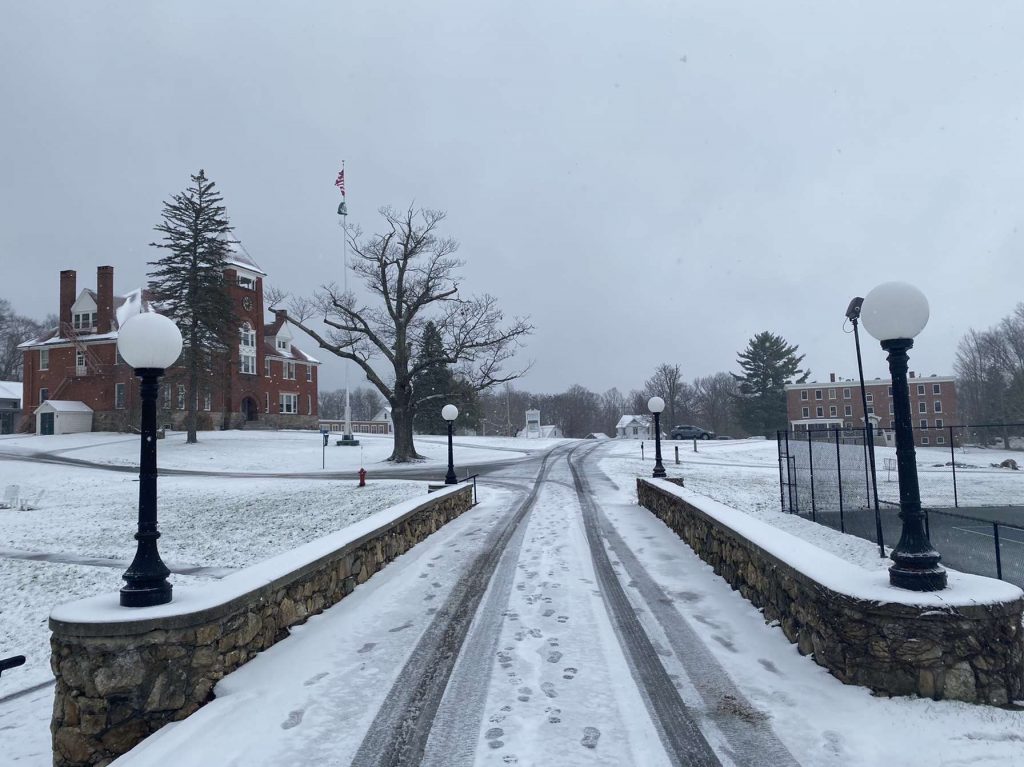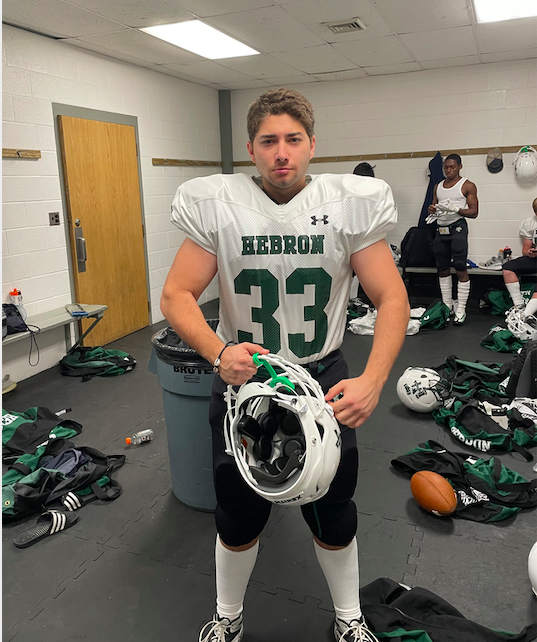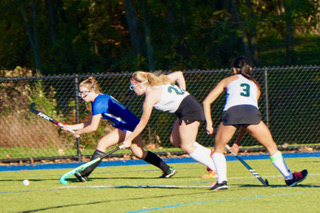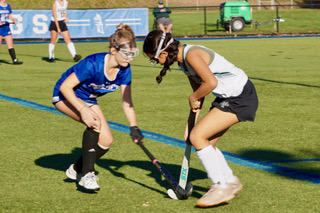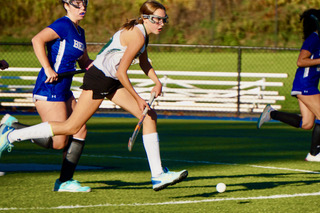By: Belle Beauchesne ’25
Homework is something almost every student has to deal with on a daily basis. Most teachers say that homework is necessary for students for different reasons such as practicing key skills taught in class, practicing accountability and responsibility, or simply just another grade in the grade book. But as we get older, we seem to have more and more homework each year, which poses the question of how necessary and beneficial it really is. Why should students have to go to school and work all day just to go home and continue to work all night? This is a question that has been debated for years, and we’ve interviewed both students and teachers to get further insight into opinions on the matter of homework.
I interviewed Mrs. Waterman, the World Literature, Honors American Literature, AP English Language and Composition, and Independent Study: Women in Literature teacher, and found that she is definitely in favor of homework and sees it as a necessity to do well in class, and prepare for college.
When asked about her general opinion on homework she responded with the following. “I think that homework is important, especially in an English classroom because reading is an individual pursuit and you interact with the text, you embody the characters that you are reading, and you live their experiences. We do that independently and as an individual. I think that assigning reading and then having kids annotate while they’re reading, answer questions while they’re reading, write questions while they’re reading, or draw a picture to interact with the text in some way is really important so that they can then come to class and learn from each other, ask their questions, challenge each other, and have all that material prepared for a really in-depth, sophisticated class discussion, activity, writing assignment, or whatever we do in class with that. It would be so hard for the class to move forward if you weren’t doing that independent leg work on your own the night before. The other reason I really assign a lot of homework and believe in homework is because I tell kids in high school you are in class eight hours a day and you have two hours to do homework at night time, give or take. But in college, which is what we are all preparing you for, it’s really an inverse relationship where you have class for only two hours but you spend about eight hours prepping for that class. The volume of homework that you are going to receive at the institutions where you guys are all hoping to go off to and attend one day just exponentially increases so much so I think if we’re not assigning homework at this level we’re doing you a disservice for what comes down the road.”
After talking to Mrs. Waterman about her thoughts on homework, I asked her if teachers should have a timeline for grading the assignments.
“I always say to my students that I feel that homework is important, so everything you read I read, and everything you take the time to write down, put pen to paper, I will take the time to read, grade, and evaluate, so I spend a huge amount of time doing homework myself. It takes a really long time to provide thoughtful commentary on student work. I’m backpedaling here because I make the same New Year’s resolution to myself every year, I’m going to be better about getting feedback to kids on time and returning their papers to them and their grades to them, so yes I think absolutely there should be a fair amount of time to return the assignments. In my own experience, I’ve taken so long to return a paper to a student that they get it back and they are like ‘what is this,’ ‘I don’t even care about this anymore’ and so all the time that I spent giving that feedback is lost because the kids don’t even remember or care anymore. So I think that yes, timely feedback from teachers on homework is really important. Should the school set limits, I don’t know how effective that would be but I think teachers have their own internal timeline where they are saying ‘oh man I have to get this back to my kids’ and I don’t know a single teacher who hasn’t had that exact thought.”
Next, I decided to interview Mrs. Ragatz, the Honors Chemistry, and Chemistry teacher because I know that she is on the no side of homework being beneficial to students. I interviewed her over email, and here is her response when asked what her opinion is on homework and how necessary it is for students.
“There are several reasons I’m not especially fond of homework.
- Students who already understand the concepts being covered frequently don’t need the homework, so it becomes busywork. Students struggling to understand the concepts in the assignment become discouraged, frustrated, or are practicing mistakes in their problem-solving. For students who need practice, it’s much better for them to have help in the classroom than to practice mistakes outside of school.
- Although it’s not as much of a problem at schools like Hebron Academy, it can be inequitable. Some students don’t have stable home lives and may have to work or take care of family members after school. In 2016-2017, over 2500 Maine school children were homeless at some point in the school year. This problem has increased with the affordable housing crisis and the pandemic. Homework magnifies the problem of socioeconomic differences that affect access to education. If you are struggling just to survive, doing your chemistry homework isn’t really a big priority, and not doing it negatively affects your grade.
- Students are already over-committed with respect to time. If students take 6 classes and every teacher assigns 30 minutes of homework, that’s 3 additional hours students must spend at the end of the day, after all other time commitments have been met, focusing on school work. It’s not healthy and it’s not sustainable.
- Most importantly, I’m a scientist. I try to use data to inform my choices in the classroom. With respect to homework, especially for younger students, research shows that it doesn’t do much to improve student achievement or outcomes for their education, except for a handful of studies that show a tiny bump in standardized test scores. It has been shown to have negative effects on mental health and family relationships. I can provide a list of references if it would be helpful.”
So, after seeing two sides of the argument from two different teachers’ perspectives, what do you think? Do you agree with Mrs. Waterman, that interacting with the class outside of it greatly benefits students and prepares them for college, or do you agree with Mrs. Ragatz, that students have enough on their plate and the extra load of homework could cause unnecessary stress, especially when science shows it’s not beneficial?




